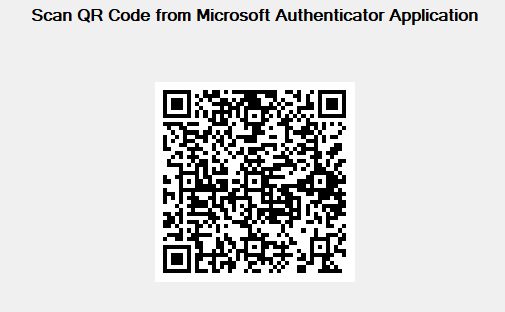Difference Between Human Resource and Payroll
Understanding the Fundamental Difference Between Human Resource and Payroll Management: In the intricate tapestry of business operations, two crucial departments often stand out: Human Resources (HR) and Payroll. While they might seem to overlap in certain areas, they serve distinct purposes within an organization. Understanding the fundamental differences between HR and Payroll is essential for any business aiming to streamline its operations effectively. Let’s embark on a journey to unravel the intricacies of these vital functions.
Table of Contents

Human Resources: Cultivating the Heart of the Organization
Human Resources is the cornerstone of any company, responsible for managing its most valuable asset: its people. HR professionals are akin to the architects of a thriving organizational culture. Their primary focus is on recruitment, talent management, employee relations, training and development, and ensuring compliance with labor laws and regulations.
At its core, HR is about nurturing a conducive work environment where employees can flourish. It involves fostering a sense of belonging, aligning individual goals with organizational objectives, and resolving conflicts to maintain harmony within the workforce. HR professionals act as strategic partners, working closely with leadership to devise policies and initiatives that promote employee engagement, satisfaction, and retention.
Payroll: The Precision Engine of Compensation
On the other hand, Payroll is the precision engine that ensures employees are compensated accurately and on time. It deals with the financial aspect of employment, encompassing tasks such as calculating wages, deducting taxes and benefits, processing payments, and maintaining accurate records of employee earnings and deductions.
Unlike HR, which focuses on the human element of workforce management, Payroll is primarily concerned with numbers and compliance. Payroll professionals must stay abreast of ever-changing tax laws, regulations, and reporting requirements to ensure accuracy and mitigate risks of non-compliance.
Key differences between Human Resources (HR) and Payroll in a concise and organized format:
| Aspect | Human Resources (HR) | Payroll |
|---|---|---|
| Focus and Function | Focuses on managing employees’ well-being, | Concentrates on processing employee |
| development, and organizational culture. | compensation accurately and timely. | |
| Responsibilities | Recruitment, talent management, training, | Calculating wages, tax deductions, benefit |
| performance evaluation, employee relations, | deductions, processing payments, and maintaining | |
| compliance with labor laws. | payroll records. | |
| Nature of Tasks | Strategic planning, policy formulation, | Transactional tasks related to payroll processing, |
| conflict resolution, employee engagement. | tax compliance, and financial reporting. | |
| Skill Sets Required | Strong interpersonal skills, communication, | Analytical skills, mathematical proficiency, |
| conflict resolution, strategic thinking. | attention to detail, knowledge of financial laws. | |
| Technology Utilization | Utilizes HRIS (Human Resources Information Systems) | Relies on specialized payroll software for |
| for talent acquisition, performance management, | accurate calculations and compliance reporting. | |
| and employee engagement initiatives. | ||
| Collaboration | Collaborates with other departments for | Collaborates with HR for accurate employee data |
| talent acquisition, policy implementation, | and benefits administration. Ensures compliance | |
| and conflict resolution. | with HR policies and regulations. | |
| Key Metrics | Employee satisfaction, turnover rates, | Accuracy of payroll calculations, compliance |
| training effectiveness. | with tax laws and regulations, timeliness of | |
| payroll processing. |
Key Differences: Where HR and Payroll Diverge
While HR vs Payroll are interconnected, they operate in distinct spheres within an organization:
- Focus and Functionality: HR focuses on the holistic development and management of employees, including recruitment, training, and performance management. Payroll, on the other hand, concentrates on the accurate calculation and disbursement of employee compensation.
- Nature of Responsibilities: HR professionals are involved in strategic planning, policy formulation, and employee relations. They act as advocates for employees’ well-being and career growth. Payroll professionals, meanwhile, deal with transactional tasks related to compensation processing, tax compliance, and financial reporting.
- Skill Sets Required: While HR and Payroll demand a keen eye for detail and adherence to regulations, they require distinct skill sets. HR professionals excel in communication, interpersonal skills, conflict resolution, and strategic thinking. Payroll professionals, on the other hand, must possess strong analytical skills, mathematical proficiency, and an understanding of financial regulations.
- Technology Utilization: HR often leverages technology for talent acquisition, performance management, and employee engagement initiatives. Payroll heavily relies on specialized software for accurate payroll processing, tax calculations, and compliance reporting.

What is HR (Human Resource)?
Human Resources (HR) is the organizational function responsible for managing the human capital within a company. It encompasses a wide range of activities aimed at attracting, developing, and retaining talent to achieve the organization’s goals and objectives. HR professionals play a pivotal role in shaping the company culture, fostering employee engagement, and ensuring compliance with labor laws and regulations. Let’s delve into the essence of HR through the lens of corporate examples.
Innovative companies like Google have revolutionized HR practices, setting the benchmark for employee-centric cultures. Google’s HR philosophy is built on the foundation of trust, autonomy, and empowerment. For instance, the company encourages a culture of creativity and innovation through initiatives like “20% time,” where employees can dedicate a portion of their workweek to pursuing projects outside their core responsibilities. Google’s HR team focuses not only on recruiting top talent but also on creating an environment where employees feel inspired to unleash their full potential. By prioritizing employee well-being and providing opportunities for growth and development, Google has established itself as a magnet for top talent worldwide.
Similarly, companies like Zappos have redefined HR by prioritizing cultural fit over skills and experience during the recruitment process. Zappos, an online shoe and clothing retailer, places a strong emphasis on its core values, encapsulated by the acronym “WOW” (Deliver WOW through service, Embrace and drive change, Create fun and a little weirdness, Be adventurous, creative, and open-minded, Pursue growth and learning, Build open and honest relationships with communication, Build a positive team and family spirit, Do more with less, Be passionate and determined, Be humble). Zappos’ HR team goes to great lengths to ensure that prospective hires align with these values, believing that cultural alignment fosters employee satisfaction and ultimately drives business success.
Zappos has cultivated a loyal workforce committed to delivering exceptional customer service by nurturing a sense of belonging and purpose among its employees.
Furthermore, multinational corporations like Procter & Gamble (P&G) demonstrate the strategic role of HR in driving organizational change and transformation. P&G, a leading consumer goods company, has a robust HR function dedicated to talent development and succession planning. The company invests heavily in leadership development programs aimed at grooming future leaders and fostering a culture of continuous learning and improvement. P&G’s HR initiatives are closely aligned with its business strategy, ensuring that the company remains agile and competitive in a rapidly evolving marketplace. By prioritizing talent acquisition, development, and retention, P&G sustains its position as a global industry leader, driving innovation and delivering value to consumers worldwide.
In conclusion, Human Resources plays a critical role in shaping the success and sustainability of organizations across industries. Whether it’s fostering a culture of innovation, prioritizing cultural fit, or driving organizational change, HR professionals are instrumental in cultivating environments where employees thrive and businesses flourish. By drawing insights from corporate examples like Google, Zappos, and Procter & Gamble, we gain a deeper understanding of the strategic importance of HR in driving organizational excellence and achieving long-term success.
What is Payroll?
Payroll, in the corporate realm, embodies the intricate process of compensating employees for their work within an organization. It encompasses a series of systematic steps aimed at accurately calculating wages, processing payments, deducting taxes and benefits, and maintaining comprehensive records of financial transactions related to employee compensation. At its essence, payroll ensures that employees receive timely and accurate remuneration for their contributions to the company’s objectives and goals.
Consider a multinational corporation like Microsoft Corporation, where thousands of employees work across various departments and locations worldwide. Microsoft’s payroll department plays a pivotal role in managing the compensation process for this vast workforce. Using sophisticated payroll software and systems, Microsoft’s payroll professionals meticulously calculate each employee’s earnings based on factors such as hours worked, salary rates, bonuses, and commissions. They also deduct taxes, social security contributions, healthcare premiums, and other benefits in compliance with relevant regulations. By leveraging advanced technology and adhering to stringent protocols, Microsoft’s payroll team ensures that employees receive their salaries promptly and accurately, fostering trust and satisfaction among the workforce.
Similarly, in the retail sector, companies like Walmart rely heavily on streamlined payroll operations to manage their extensive network of employees. With millions of associates serving customers across thousands of stores worldwide, Walmart’s payroll department faces the daunting task of processing payroll for a diverse workforce with varying compensation structures. Utilizing robust payroll systems integrated with time-tracking software,
Walmart’s payroll professionals accurately calculate hourly wages, overtime payments, and performance-based incentives for each employee. Moreover, they navigate complex tax regulations across different jurisdictions, ensuring compliance while minimizing the risk of errors or discrepancies. By maintaining meticulous payroll records and promptly resolving any payroll-related issues, Walmart demonstrates its commitment to fair and transparent compensation practices, enhancing employee morale and loyalty.
In the technology startup landscape, companies like Airbnb exemplify how innovative approaches to payroll management can support rapid growth and scalability. As Airbnb expanded its operations globally, its payroll function evolved to accommodate the needs of a dynamic and geographically dispersed workforce. Leveraging cloud-based payroll solutions and automation tools, Airbnb’s payroll team streamlined processes for onboarding new hires, managing international payments, and adapting to diverse regulatory environments.
By embracing agile payroll practices and integrating payroll with other HR systems, Airbnb empowered its employees to focus on core business activities while ensuring accuracy, efficiency, and compliance in payroll operations. This strategic approach to payroll management not only facilitates Airbnb’s growth trajectory but also reinforces its reputation as a forward-thinking employer committed to empowering its workforce.
In summary, payroll is a critical component of corporate operations, encompassing the processes and systems involved in compensating employees for their work. Whether in multinational corporations like Microsoft, retail giants like Walmart, or innovative startups like Airbnb, payroll departments play a vital role in ensuring accurate, timely, and compliant payments to employees. By leveraging technology, adhering to regulatory requirements, and prioritizing transparency and efficiency, organizations can effectively manage their payroll functions, fostering trust, satisfaction, and productivity among their workforce.
The Synergy Between HR and Payroll
While HR and Payroll serve different functions, they are interconnected components of effective workforce management. Seamless collaboration between these departments is imperative for maintaining employee satisfaction, compliance, and organizational success.
HR provides Payroll with vital information such as employee hours worked, leave balances, and tax withholding preferences. In return, Payroll ensures that employees are compensated accurately and in compliance with applicable laws and regulations.
Moreover, HR and Payroll collaborate on initiatives such as benefits administration, where accurate payroll data is essential for enrolling employees in health insurance, retirement plans, and other perks.

